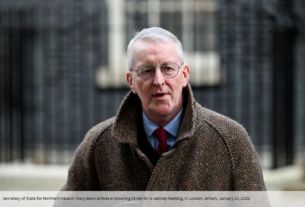Donald Trump recently pardoned antiabortion activists convicted of blocking access to abortion clinics. These individuals had been charged with federal offenses for obstructing women seeking reproductive healthcare services. Trump’s decision has ignited controversy over the legal and political ramifications of pardoning those involved in such protests.
The activists in question were convicted under federal law for physically blocking access to abortion clinics. Protesters often chained themselves to clinic doors or stood in front of entrances, preventing women from receiving care. These actions sparked heated debates about the limits of protest and the right to disrupt legal healthcare.
Trump’s decision to issue these pardons was seen as a move to strengthen his support among pro-life voters. He stated, “I am proud to stand with those who defend the sanctity of life.” His actions aligned him more closely with antiabortion groups, solidifying his stance on the issue as the 2024 election approaches.
Critics argue that the pardons send a dangerous message about the justice system and protest actions. “By pardoning those who block women’s access to healthcare, Trump undermines the rule of law,” said Anna Richardson, a pro-choice advocate. They warn that the move may embolden others to take similar illegal actions without fear of consequences.
The pardons came in the wake of significant changes to abortion laws in the U.S. Following the 2022 Supreme Court decision to overturn Roe v. Wade, many states have passed laws restricting or banning abortion. This political backdrop made Trump’s decision even more controversial, fueling the ongoing debate about abortion rights.
Legal experts have raised concerns about the impact of the pardons on future legal protests. “This risks setting a dangerous precedent,” said attorney Matthew Collins. He emphasized that it could encourage more illegal protests, particularly against abortion services, with the belief that political figures will protect such actions.
Pro-choice groups have strongly condemned the pardons, viewing them as an attack on women’s healthcare rights. “The right to make healthcare decisions is non-negotiable,” stated Claire Hughes from the National Abortion Federation. These groups argue that the pardons encourage actions that could prevent women from making autonomous decisions regarding their reproductive health.
Supporters of the pardons, however, argue that they protect the right to protest. “We believe in standing up for the unborn and our right to protest peacefully,” said activist Mark Thompson. This perspective stresses the importance of defending free speech and the right to engage in civil disobedience, even when it involves breaking the law.
The political impact of Trump’s decision is far-reaching. It is likely to strengthen his position with conservative voters, especially those opposed to abortion. At the same time, it risks alienating moderate voters who support abortion rights or view the pardons as a misuse of presidential power.
“This is a clear attempt to manipulate the judicial system for political gain,” said political analyst Julia Williams. “Trump seeks to rally his base at the expense of the rule of law.” This move adds to the ongoing political polarization surrounding abortion and the limits of presidential authority.
The pardons raise questions about the role of protest in a democracy. “There is a fine line between protesting for a cause and preventing others from accessing their legal rights,” explained law professor James Roberts. The debate over whether civil disobedience should be protected or punished highlights the tension over abortion access and the broader political climate.




